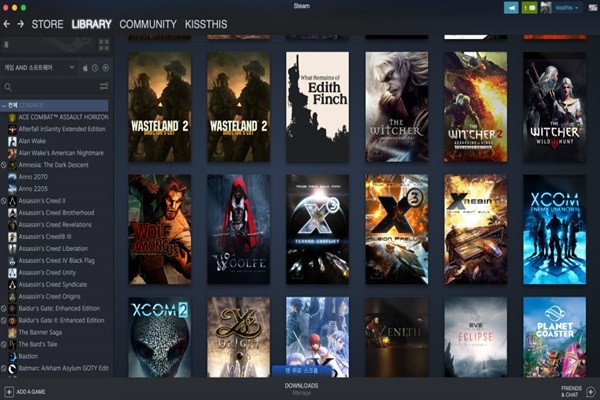Game Rating and Administration Committee (GRAC) is going to regulate foreign PC games that are being distributed in South Korea without being rated first through a video game distribution platform “Steam”. By doing so, South Korea’s gaming industry believes that reverse discrimination between South Korean gaming companies and foreign gaming companies will be resolved. GRAC ordered 30 or so foreign companies to have their games that are being sold in South Korea through Steam rated. Valve also informed gaming companies about the statement from GRAC and it even took a step further and stated that it would terminate sales in South Korea if companies do not obtain ratings for their games.
GRAC will improve its system so that foreign gaming companies can conveniently request for ratings on their games. If foreign gaming companies do not receive ratings for their games, their games will become illegal. Regarding illegal games, GRAC can reject distribution or have them thrown out. Regarding hosting sites, it can request corresponding sites to be blocked. It can also impose a criminal penalty depending on the Game Industry Promotion Act.
For a while, foreign games were not subject to South Korea’s rating classification system as it was difficult to understand whether their makers have intentions to distribute their games in South Korea. Regardless whether a game is based in Korean or non-Korean, GRAC decided that a gaming company has an intention to distribute its game in South Korea if the corresponding game has many users in South Korea and creates many downloads. A principle that relevant laws need to be applied equally regardless of the origin of game that targets the people in South Korea was reflected in GRAC’s decision.
It seems that GRAC has set up standards while Valve is cooperating with GRAC. There are growing expectations that a new landscape will be opened regarding reverse discrimination between South Korean companies and foreign companies.

Steam is the world’s biggest video game distribution platform. More than 1 million people in South Korea use Steam. Because it is viewed as a global platform, Steam has been distributing many games that were not rated in South Korea through Steam. Its reasoning was that one country’s law cannot be applied to the entirety of a global platform. Steam basically neglected asking gaming companies to have their games rated unlike foreign companies such as Google, Apple, Sony Interactive Entertainment, and Oculus that obtained rights to rate games autonomously. Steam has been supporting payments made by South Korean credit cards through South Korean payment gateway companies since December of 2018 and it has shown acts that contrast each other.
Even so, no sanction had been imposed on foreign games without ratings as South Korea did not have a body that can hold a foreign company accountable. There was a lot at stake since blocking 1 million gamers from accessing games could potentially create an enormous amount of ripple effect. As a result, games such as “Hatred” that bring extreme violence to the fore had been distributed.
GRAC still needs to be effective with its new policy. It is realistically impossible to levy a criminal penalty on a foreign company. Foreign gaming companies can simply withdraw from the South Korean market as they have already made sales from their un-rated games. As a result, it can be users of these games who may be victims of GRAC’s new policy. If Valve or foreign gaming companies do not come up with relief measures, there is no way for these users to be compensated.
“With this as an opportunity, we expect that Steam will be equipped with an appropriate legal position considering its status in South Korea.” said one expert from the industry. “However, there need to be discussions regarding a need for preliminary review in a long term as we saw with the rating classification incident regarding games that are made not for profit.”
Staff Reporter Lee, Hyeonsoo | hsool@etnews.com